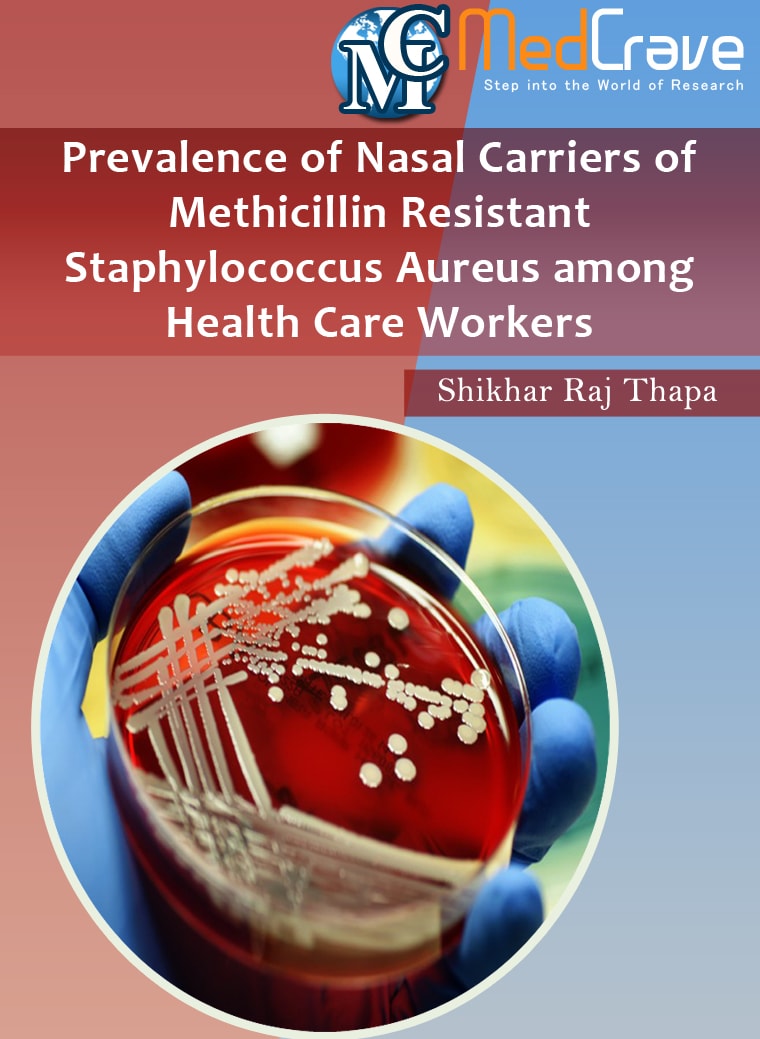eBooks View all | By AtoZ | By category
Prevalence of Nasal Carriers of Methicillin Resistant Staphylococcus Aureus among Health Care Workers
By Shikhar Raj Thapa
Department of Medical Laboratory Technology, Tribhuvan University, India
Published: Jul 26, 2017 | pg. no: 1-25
Abstract: Background and objectives: Staphylococcal infections occur regularly in hospitalized patients and have severe consequences. Due to an increasing number of infections caused by Methicillin-Resistant Staphylococcus Aureus (MRSA) strains, which are now most often multiresistant, these strains impose an alarming threat to medical science. This study attempts to find out the prevalence of nasal carriers of MRSA in health care workers of Janamaitri Hospital and nursing students of JFIHS/LACHS, Kathmandu, Nepal. Material and methods: A total of 154 nasal swabs were collected from the anterior nares of the nursing students (118) and hospital staffs (36) of JFIHS. These swabs were inoculated onto blood agar and mannitol salt agar. After overnight incubation the agar plates were analyzed for bacterial isolates and antibiogram was produced. MRSA detection was done by Cefoxitin disk test method. Results: Out of 154 nasal swabs, 34(22.07%) of them had Staphylococcus aureus, 102(66.23%) of them had Coagulase Negative Staphylococcus (CoNS), and 18(11.68%) of them had no growth. Out of 34 Staphylococcus aureus, 11 of them were MRSA. Conclusion: The present study indicates high nasal carriage rate of MRSA (32.35%) among the nursing students and the hospital staffs. The carriage rate was higher in case of nursing students than the other hospital staffs. Resistance to drugs of other classes was also seen in Staphylococcus aureus.
View eBook
